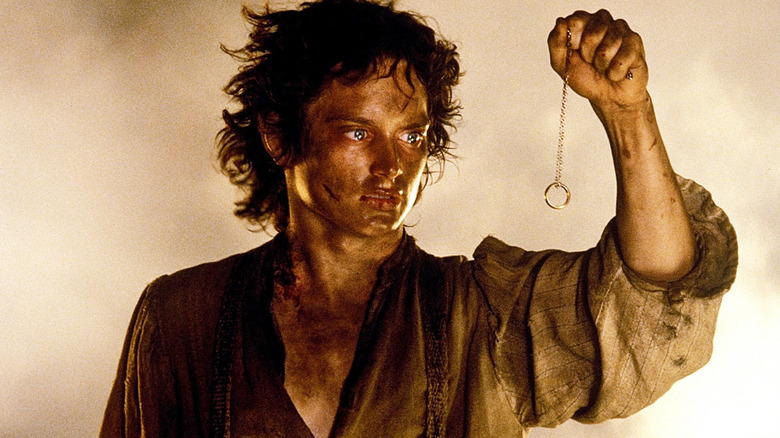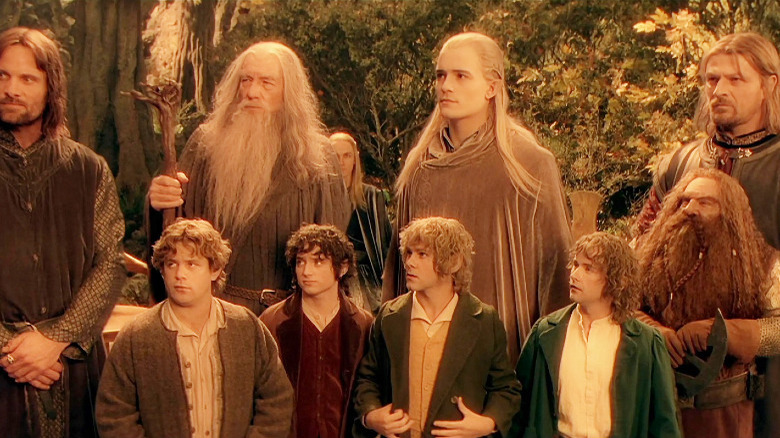The Lord Of The Rings Almost Didn't Feature Its Famous Howard Shore Score
Great film scores are inseparable from the movies they were made for. Who can think of "Jaws" without John Williams' famously dread-inducing two-note theme springing to mind? Or imagine "Psycho" absent Bernard Herrmann's screeching violin? And what better way to get yourself hyped up to perform even the most unremarkable of tasks than by listening to Howard Shore's grandiose leitmotifs for the "Lord of the Rings" film trilogy?
Shore's music for Peter Jackson's J.R.R. Tolkien adaptation runs the gamut in terms of tone and emotion; from the cozy, comforting vibes of "Concerning Hobbits" to the bombast and bravado of "The Bridge of Khazad-dûm," the terror of "The Passage of the Marshes" and "Shelob's Lair," and, of course, the gentle heartbreak of "The Grey Havens." Like everything else in Jackson's movies, however, its score could have gone in a very different direction. Indeed, prior to hiring Shore, the filmmaker and his team had approached none other than Oscar-winner James Horner to craft the music for his Middle-earth adventure.
In an interview with Classic FM in January 2015, a mere six months before his tragic death in a plane crash, Horner confirmed he had passed on an offer to provide the score for Jackson's "Lord of the Rings" movies — albeit for reasons that had nothing to do with creative differences or a lack of interest in the project.
'I don't regret it'
By the time "The Lord of the Rings" entered development in the late 1990s, Horner had already earned his stripes as a composer, having crafted scores both heartfelt and poignant ("An American Tail," "Field of Dreams"), as well as exciting and thrilling ("Star Trek II: The Wrath of Khan," "The Rocketeer"). One imagines it might've been Horner's memorable score for the film "Braveheart," in particular, that convinced Jackson he was perfect for the world of Tolkien.
Horner, who won a pair of Academy Awards for "Titanic" in 1998, told Classic FM Jackson had approached him shortly after Horner's daughter had undergone surgery. Not wanting to be away from her for a year to work on "The Lord of the Rings" in New Zealand, Horner declined the offer. "I don't regret it," he added.
Naturally, Horner suspected he would've gone about things differently than Shore, so far as his approach to Tolkien's expansive fantasy goes. At the same time, he felt Shore did such a fantastic job, it doesn't really matter what his own score would've been like:
"I would have treated things probably quite differently than Howard did. But who's to say that anyone would have noticed? It's such a successful soundtrack, does it matter aesthetically what I think? What matters is... does it help the film ultimately, which it brilliantly does. And that's the most important thing about composing for film for me — and a lot of composers don't have that gift and some do."
Like Horner said, the best scores are the ones that aid the films they were made for, bringing them to life in such a way it becomes near-impossible to imagine the movies without them. In that respect, Shore succeeded with flying colors on "The Lord of the Rings."

